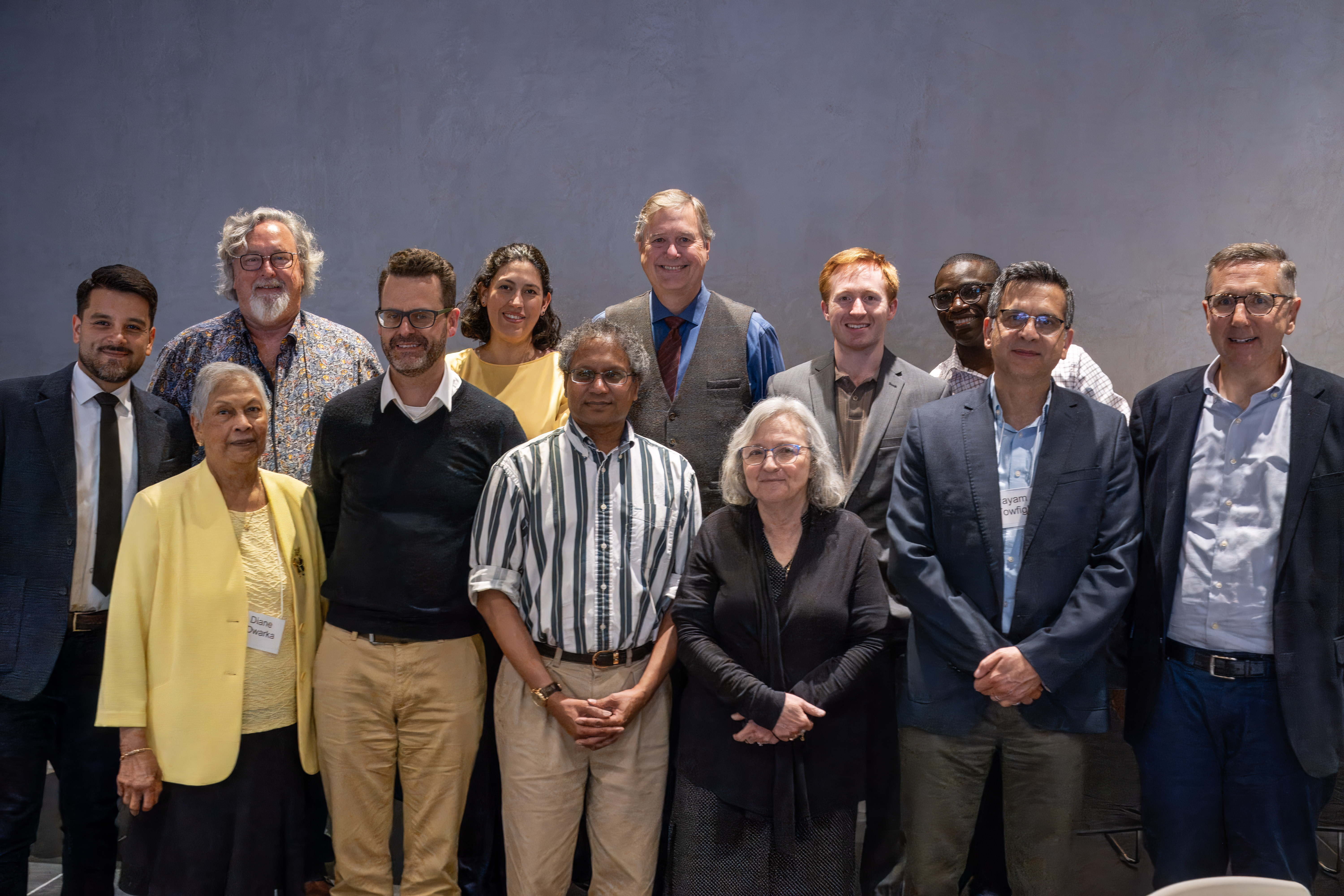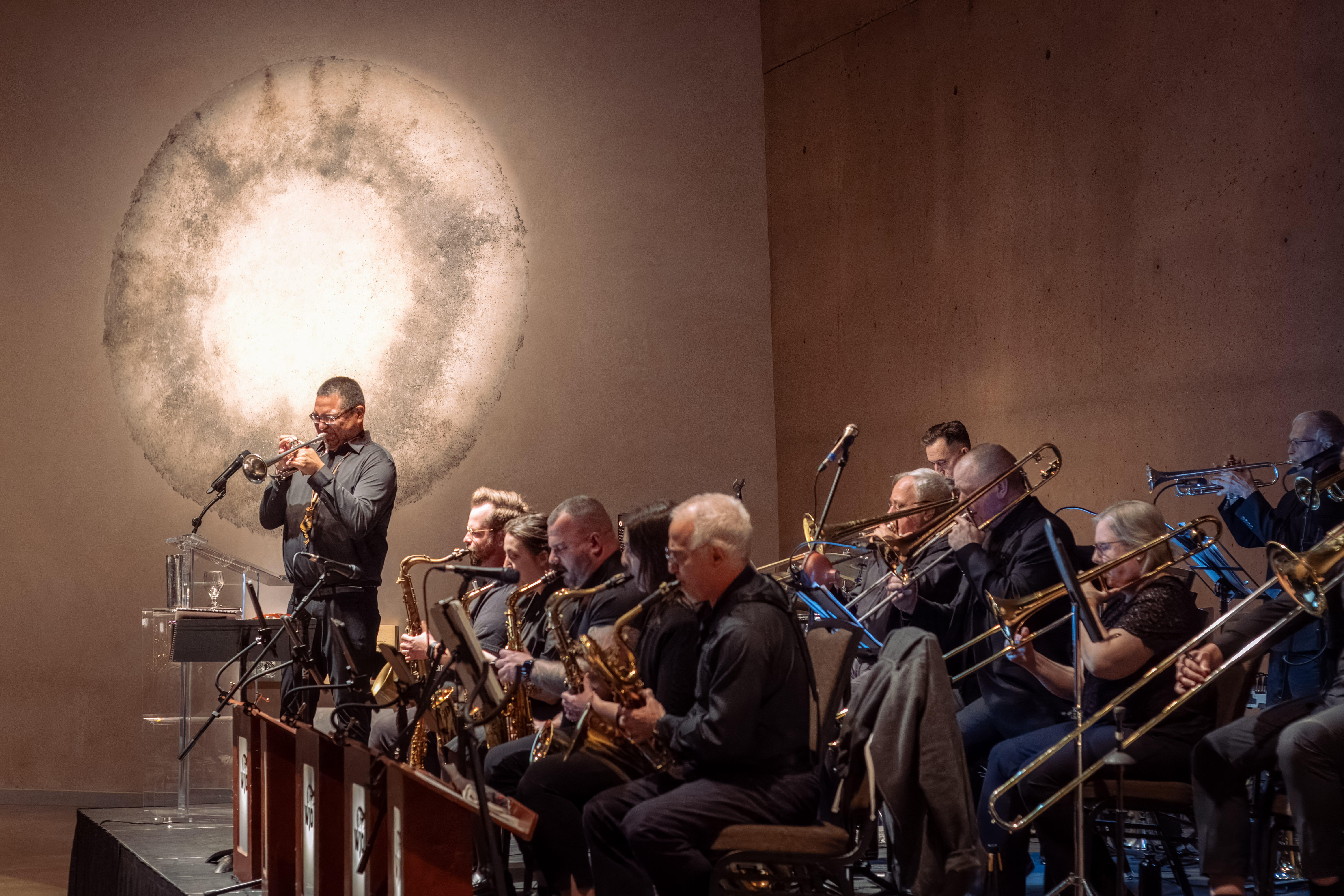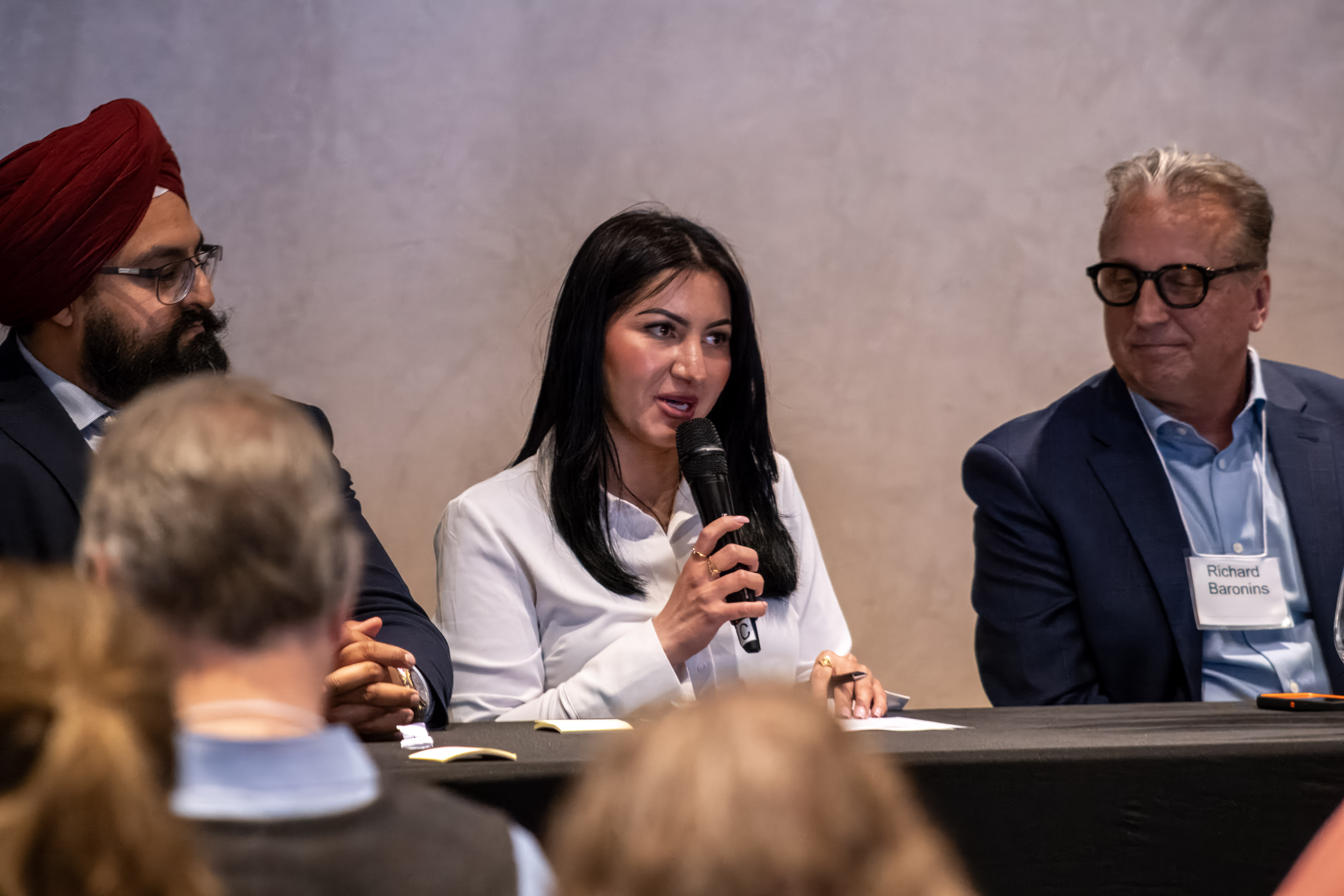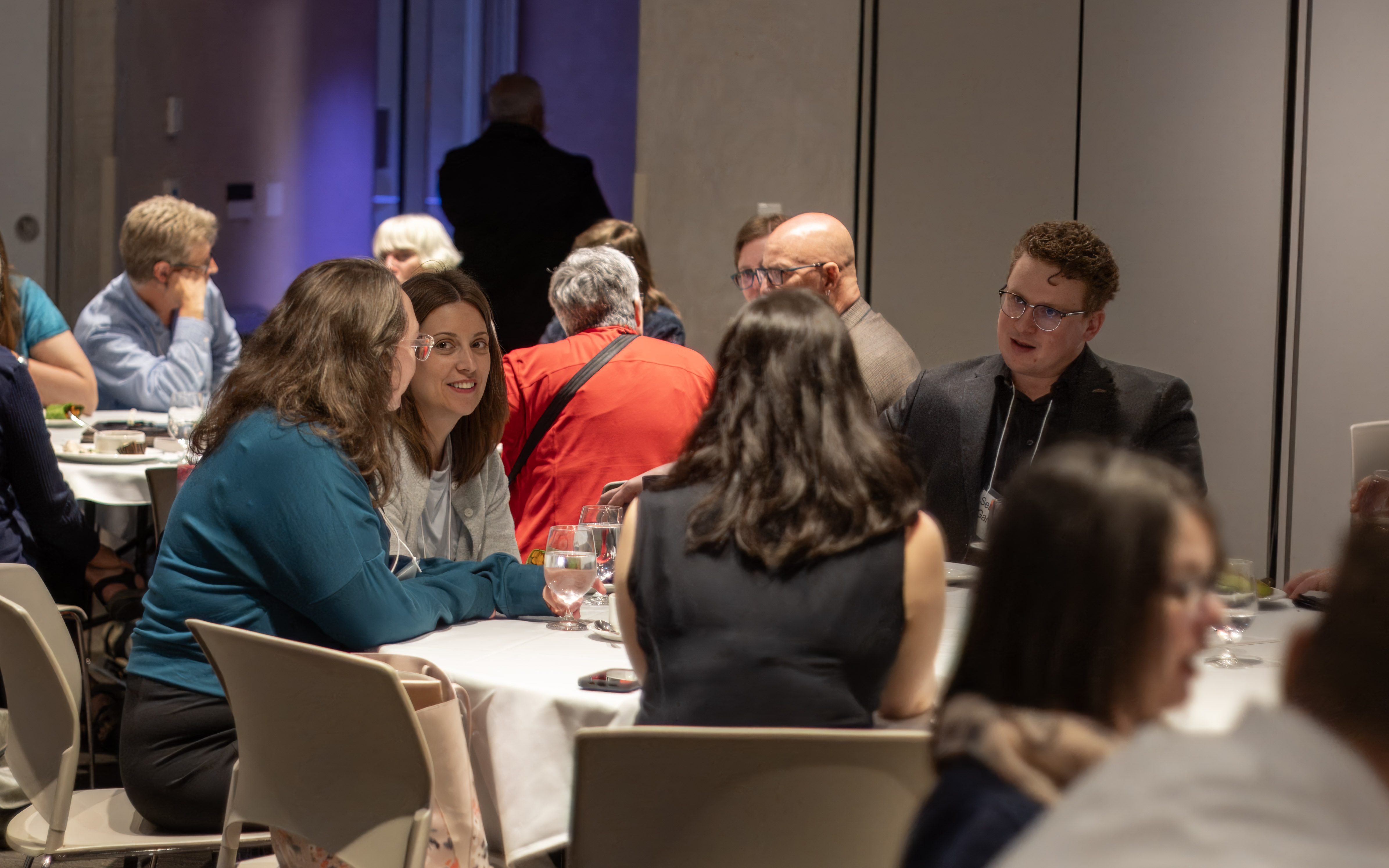Over 150 delegates from across Canada gathered at the Canadian Museum of Human Rights in Winnipeg for the ninth iteration of the Our Whole Society: Fostering Hope in a Divided World conference, June 15-17. Organized by the Canadian Interfaith Conversation, the biennial conference brings together academics, civil society leaders, faith representatives, government representatives, and members of the public to explore the evolving role of religion and spirituality in Canadian society. The conference has been actively supported by the Bahá'í Community of Canada’s Office of Public Affairs since its inception in 2013.




“In selecting this year’s theme, the steering committee noted how complex political, social, and environmental crises, coupled with limited institutional responses, can foster a sense of despair and paralysis in Canadian society,” said Andrea Salguero, director of the Office of Public Affairs for the Bahá’í Community of Canada and chair of this year’s conference. “We chose to explore hope—from both faith and secular perspectives—not as passive optimism, but as a driving force for constructive action. Hope enables us to see the world as it is while working with others toward its betterment.”
The conference opened with remarks from Manitoba’s Lieutenant Governor, the Honourable Anita Neville, who stressed that hope is neither impractical nor naive. “Hope is a powerful word. It is a realistic attitude and emotion that must co-exist alongside a clear-eyed acceptance of all that stands in the way of our goals. That is the kind of hope motivating this conference and filling the hearts of the scholars, leaders, and activists gathered here,” she said.
Keynote contributions complemented a program organized to explore hope in relation to themes of importance to Canadian society—such as reconciliation, climate change, polarization, human rights, and international affairs. Conference keynote speakers and special guests included the Honourable Lloyd Axworthy, former Minister of Foreign Affairs; Prof. Payam Akhavan, professor of international law and member of the Permanent Court of Arbitration; environmental author and thought leader Elin Kelsey; the Honourable Mike Moroz, Manitoba’s Minister of Innovation and New Technology; and Scott Gillingham, Mayor of Winnipeg.
As both the venue and an institutional partner of this year’s conference, Winnipeg’s Canadian Museum for Human Rights highlighted human rights as a foundation for hope in addressing societal challenges in the conference program. Drawing on the museum’s more than a decade of experience as an active centre for human rights education, Matthew Cutler, Vice-President of Exhibitions, discussed the unifying role of human rights as a source of collective motivation: “The language of hope and human rights is a language that can speak across many traditions. It gives us a common moral vocabulary even as we draw from different theologies and philosophies,” he said.
The experiences of individuals, communities, and organizations making positive contributions to Canadian society were also highlighted throughout the three days of the conference as sources of inspiration and hope, as practical examples of sustained action in the face of complex societal challenges.
Local efforts were a particular focus of the conference, including a workshop delivered by members of Winnipeg’s local Bahá’í community that explored how a sense of belonging and common purpose is being fostered in neighbourhoods across the city. “We live in an age that feels defined by fragmentation where isolation and division appear to be growing. But underneath the noise there is another story being written. It is a quieter story of healing and transformation. A story of ordinary people who are choosing to build, to listen, to belong, and to serve others,” said Dagmawit Eshetu Habtemariam, workshop facilitator and local representative of the Bahá’í community, “in neighbourhoods across Winnipeg families from diverse cultural and faith backgrounds are coming together to create spaces of spiritual and social renewal. This includes children’s moral education classes, junior youth groups that foster leadership and service to the community, gatherings for parents that build deep friendship and neighbourhood-wide initiatives that invite everyone to contribute.”
Plenary session recordings, and a special musical arrangement on the theme of hope performed by the Winnipeg Jazz Orchestra will be available on the Our Whole Society website in coming months. Some conference proceedings will also be published in an upcoming issue of the International Journal for Peace and Justice, produced by the University of Manitoba’s Arthur V. Mauro Institute for Peace & Justice, one of the conference’s academic partners.

